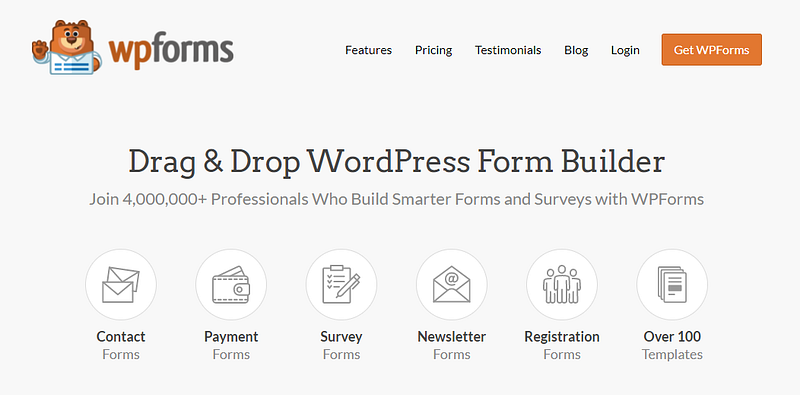Read This before Choosing WordPress for Your E-commerce Website
Choosing the right platform for your eCommerce website is very important, especially if you are launching your business online and looking to brand your own business or product. With so many platforms available, it can be hard to settle on one, but WordPress, in this case, has proven to be the best platform for your business. WordPress is the standard for most bloggers. Its popularity comes down to two things: It's easy to use and has a large community supporting it. Those same reasons make it an excellent tool for building e-commerce sites. This is because WordPress can easily scale to support up to thousands of products if required and can run with very little effort. But before you make any final decision, go through these essential points that will help you make up your mind about WordPress. WordPress has the most user-friendly interface. You can build an e-commerce website and landing page in no time without or with little technical help. And since WordPress is the world’s most popular CMS, it can effectively manage your site’s content. After you set up your website, you can add, design, edit, and update your content with ease. If you don’t feel like it, you don’t even have to custom-build your WordPress e-commerce store from scratch. You can have an externally hosted store and still use WordPress without any limitations. The best part is that - WooCommerce, the most popular e-commerce plugin with more than 60 million downloads, was acquired by WordPress in 2015. WooCommerce also has a user-friendly interface and allows you to set up your product pages and manage inventory effortlessly. It also offers currency, tax, shipping, and payment gateways. You can use this plugin to take your business to the next level.1. WordPress offers ease of use
Share your project details to build your path toward success.
2. WordPress offers SEO benefits
WordPress is written using high-quality code and can create semantic markup (an HTML that reinforces meaning to the web page). Thus, Google and other search engines usually rank WordPress higher.
Some people believe that SEO isn’t relevant for small businesses. But it is an SEO myth.
It is thus crucial to optimize every page for SEO, create title tags and meta descriptions, and optimize your URLs. Most of the WordPress themes out there are also fully responsive.
The best part? Your WordPress theme’s capabilities can be extended with tons of additional plugins (both free and paid). You can always rely on WordPress SEO plugins to further optimize your website pages and get better search engine rankings.
3. WordPress makes it easy for you to create forms
Any e-commerce site owner knows how essential forms are. You use them to make visitors sign up for emails, account registration, completing a purchase, and even conducting surveys and other valuable information.
Online forms are similar to paper forms but with the added benefit of being faster and efficient. It also allows automation.
WordPress offers an easy-to-use drag and drop form builder with which you can collect all sorts of information and data. Their Wpforms can help to increase lead generation and conversions.
Besides, online forms allow you to keep track of your visitors better. They will also help you discover just how many people visited your site and when, how much time did they spend on your site, and more. You can use this information to improve your site.
Online forms can also fulfill the customer’s desire for quick communication. You will be able to reply to a query in real-time.
4. WordPress is easily customizable
With the plethora of both free and paid WordPress themes and plugins available, you can easily customize your site without any prior knowledge of web design.
If you look at WordPress themes, a majority of them give you options to alter color and background, upload logo, design sliders, and so on. You can thus customize your site using themes and without the need to write codes.
WordPress plugins also let you add custom functionality to your site. You can use them to add advanced features like contact forms, analytics, and more.
5. WordPress is cost-effective
If you are setting up a new e-commerce store, it is most likely that you have a minimal or zero budget. WordPress is an excellent option for startups as you will be spending a lot less than you would if you go to one of its competitors like Drupal.
If you are using Drupal CMS, you should consider migrating from Drupal to WordPress.
For starters, obtaining a domain name will cost you only around $10 to $12 yearly. The average web hosting cost is $30 per month. And using WordPress is entirely free.
If you are to spend on other options to boost your website, consider spending it on security, a dedicated e-commerce theme, and some finest eCommerce plugins for conversion rate optimization.
6. WordPress offers high-level security
Security has been a hot topic in the news lately, and most e-commerce business owners are concerned about their personal data being safe. After all, an e-commerce website will have lots of confidential and sensitive information about your customers. Thus, you need high-level security.
WordPress is a preferred option among e-commerce site owners as it offers tight security. It has more than 50 expert security researchers working round the clock. The WordPress community team also keeps on updating on security issues regularly.
Plus, you can use plugins such as Activity Log, Duplicator, and Sucuri Security to enhance security. You can get both free and paid versions of WordPress security plugins.
That’s a Wrap!
WordPress is a great way to get started with eCommerce. Easy to set up, easy to use, and has strong SEO overall. And because of the vast community around WordPress, there are plugins and addons that will help you in your eCommerce journey.
This article highlighted six main aspects of WordPress as an eCommerce site and showed you what factors should be taken into consideration before making a decision. You will be able to make more informed decisions and eliminate time-consuming research tasks.








